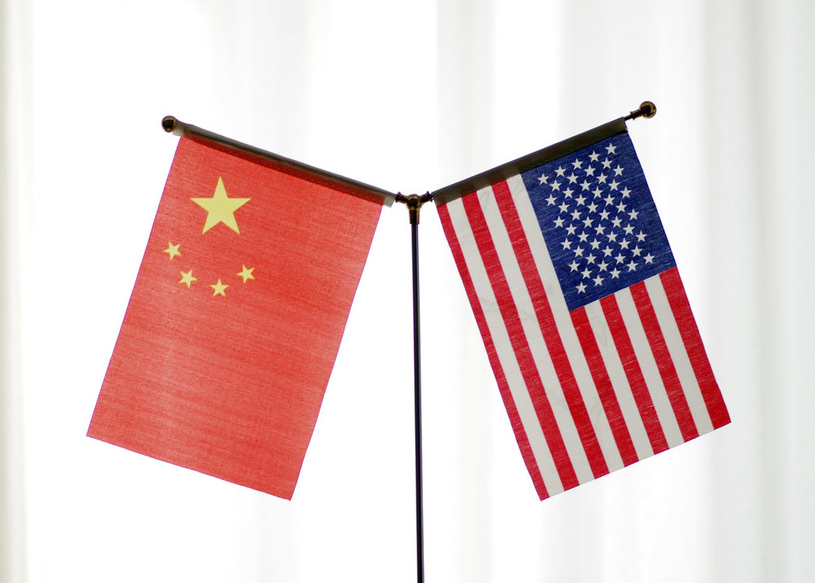Trade strife seen as threat to relations


Experts, officials express concern about how US is conducting relationship with China
As the US-China trade dispute intensifies, experts and elected officials in the US say the Trump administration's policies toward China could do long-term damage to bilateral relations.
The trade tensions between the two countries were rekindled after China announced 5-10 percent tariffs on $75 billion worth of US goods on Thursday, in retaliation for the US raising tariffs on an additional $300 billion of Chinese imports by 10 percent.
US President Donald Trump on Friday announced via Twitter that he would raise existing tariffs on two batches of Chinese imports, a total of $550 billion worth of goods.
"We face a very profound challenge in this country. We are at risk under the leadership of President Donald Trump of going dangerously off course in our handling of the most important bilateral relationship that exists in the world today," said David Firestein, president and CEO of the George H.W. Bush Foundation for US-China Relations, at a conference on those relations Saturday in Burlingame, California.
Trump tweeted Friday that China is an "enemy", which is a "dangerous statement" and a "huge departure from all previous past practice", said Firestein, who is also executive director of the University of Texas' China Public Policy Center.
"The framing of China as an enemy is a radical departure from all former US presidential thinking and Washington thinking about China in the modern era," he said.
The reason why the Trump administration "gets so much wrong" about the US-China relationship and about China is because the policymaking has become "untethered from a factual basis", he explained. One example is Trump repeatedly saying that China is paying for the tariffs, Firestein said.
According to an estimate by the Federal Reserve Bank of New York, the US tariffs already in place are costing each US household $830 a year, forecast to $1,030 when the new tariffs are imposed on another $300 billion of Chinese goods.
"When you are basing your decisions on falsehoods, the likelihood is that the resulting policy is going to be flawed," Firestein said.
Oakland Mayor Libby Schaaf called Trump's trade policies "misguided" and "horrible".
"People should really pay attention to how this one person single-handedly invokes tariffs and a trade war," she told China Daily.
Schaaf said the "good American jobs" have been hurt, as workers in Oakland rely on parts coming in to make Teslas at a plant in Fremont, and longshoremen in the Port of Oakland depend on exports of produce and wine to China.
"I don't think we are gaining anything by trying to punish other countries for their success. It's far wiser to combine our resources to see maximum success for both countries," she said.
Californian Lieutenant Governor Eleni Kounalakis warned that international relations are not and cannot be based on a "transactional win-lose mentality".
"International relations must be win-win. Mistakes, misunderstandings, missteps and sometimes even just bruised egos can lead to wars," she said.
The US-China relationship is now at a "pivotal point", where the further deepening of economic ties can't be assumed and could potentially be reversed, said Sean Randolph, senior director of the Bay Area Council Economic Institute.
"While much of the first 40 years of the relationship has been characterized by growth and optimism, the relationship today is entering new and largely unchartered territory," Randolph said.
Since taking office in 2017, Trump has aggressively pursued trade deficit-reduction with China and other countries. In the first half of this year, US imports from China fell 12 percent and US exports to China fell 19 percent, a major reversal after nearly 30 years of sustained growth, according to Randolph.
Despite the administration's efforts to reduce the trade deficit with China, the gap reached a record of $419.2 billion in 2018, the largest in US history, according to the US Census Bureau.
Randolph is worried that the current set of issues is going beyond trade to investment and "national security", affecting technology and scientific exchanges, which makes it even more difficult to resolve.
The latest escalation also has brought the next US recession closer, according to a majority of economists polled by Reuters recently. The chance of a US recession in the coming 12 months rose to 30 percent from 25 percent in the July poll. The median probability of a recession in the next two years jumped to 45 percent from 35 percent in July, according to the poll.
"He (Trump) has found a solution. The only problem is the solution is worse than the problem was in the first place, which is why we have larger deficits, higher taxes, a softening stock market and more and more discussion of a recession," Firestein said.




































